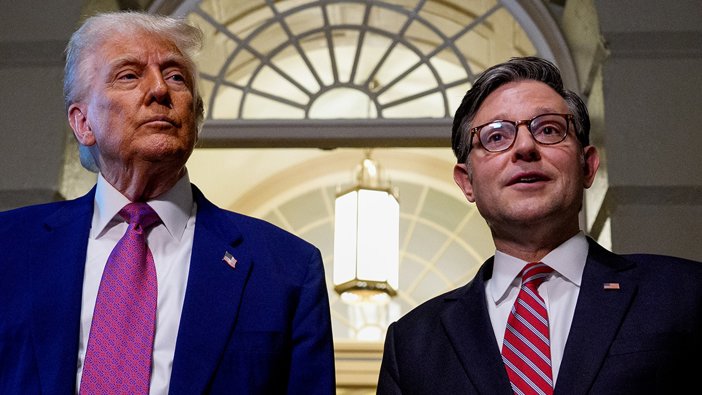
GOP Tax Plan Could Slash $3.94T Revenue
Joint Committee on Taxation estimates nearly $4 trillion revenue loss from GOP’s new tax package.
Revenue Loss Raises Alarms Amid National Debt
The Joint Committee on Taxation has projected that the House GOP’s sweeping tax bill, titled the One Big Beautiful Bill Act, would reduce federal revenues by nearly $3.94 trillion between fiscal years 2025 and 2034. The committee’s nonpartisan analysis estimated the net total revenue effects at -$3.939368 trillion, igniting concerns among lawmakers and budget officials about the long-term fiscal implications.
The legislation passed the House of Representatives last week with no Democratic support and two Republican defections—Reps. Thomas Massie of Kentucky and Warren Davidson of Ohio. House Freedom Caucus Chair Rep. Andy Harris, R-Md., voted “present,” stating, “I voted to move the bill along in the process for the President. There is still a lot of work to be done in deficit reduction and ending waste, fraud, and abuse in the Medicaid program.”
President Donald Trump praised the House’s approval of the legislation and called on the Senate to follow suit. In a statement posted on Truth Social, he declared, “Great job by Speaker Mike Johnson, and the House Leadership, and thank you to every Republican who voted YES on this Historic Bill! Now, it’s time for our friends in the United States Senate to get to work, and send this Bill to my desk AS SOON AS POSSIBLE!”
White House and Senate Divide on Fiscal Impact
Despite the administration’s support, some Republican senators have signaled hesitation to back the bill in its current form. Their reservations are compounded by warnings from the Joint Committee on Taxation and other fiscal watchdogs. A spokesperson from the Office of Management and Budget dismissed the committee’s findings, arguing that “the problem with all of these studies is they willfully ignore current tax policy. You can’t do that and be taken seriously.”
White House Deputy Chief of Staff for Policy and Homeland Security Advisor Stephen Miller also defended the measure, calling out critics for relying on what he termed flawed logic. “This is based entirely on CBO claiming that extending the current tax rates (not raising them) will 'cost' the government $4 trillion in revenue,” he argued. Miller challenged the premise that potential tax cuts represent a cost, calling it a “Democrat-collectivist argument.”
Miller emphasized that the bill aims to reduce government expenditures, reform welfare programs, and implement immigration controls, adding, “BBB cuts taxes, cuts spending, reforms welfare and ends mass migration.”
Business leader Elon Musk also weighed in, expressing disappointment during a televised interview. He criticized the bill’s scale, claiming it undermines efforts to promote governmental efficiency. President Trump responded by acknowledging differing opinions: “I’m not happy about certain aspects of it, but I’m thrilled by other aspects of it.”
With the national debt surpassing $36 trillion, the legislation’s future in the Senate remains uncertain. The measure’s fate will likely hinge on whether fiscal conservatives accept its potential revenue losses in exchange for broader policy goals. As the debate continues, the GOP tax plan represents a defining moment in the administration’s economic agenda.






